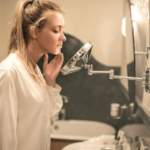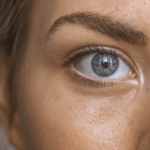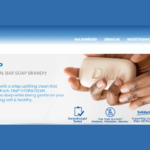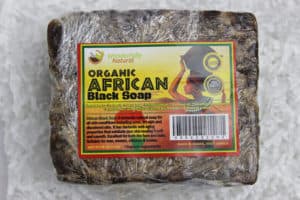If your skin is genetically predisposed to acne, you can be battling this skin condition more than other people. This is known as acne-prone skin. What does acne-prone mean?
Acne-prone skin is skin that has a genetic predisposition to developing pimples and comedones. This skin condition is most commonly seen on the face, neck, chest, shoulder, and back.
Acne-prone skin is often shiny because of its excessive amounts of sebum or oil produced by the sebaceous glands.
Many dermatologists believe that if you often notice big and cystic bumps on your face and other parts of the body where pimples usually appear, you can be regarded as an acne-prone person. Another indication that you are acne-prone is if your scalp is oily and has lots of dandruff.
Read on to learn more about acne-prone skin, its characteristics, its causes, some skincare tips, and more.
What Does Acne-prone Mean?

Having acne-prone skin means you are more prone to developing pimples and comedones in the face, neck, chest, shoulder, and back. Acne-prone skin is usually shiny due to having sebaceous glands that are actively producing sebum or oil.
While those with oily skins tend to be more prone to pimples and acne, even people with normal skin get blemishes, blackheads, and full-blown breakouts. That means too much oil in the skin is not the only trigger for the development of acne.
Even with regular washing of the face and eating healthy foods, some people experience massive blemishes and breakouts.
In contrast, some people who eat junk foods are not religious in washing their faces after sweating and all that, and yet they enjoy blemish-free and acne-free skin complexions.
So, what is acne-prone skin? One obvious answer is that you are plagued with pimples and acne simply because your skin type is acne-prone. It is really unfair, but that’s the real state of your skin. But don’t fret because there are many things you can do to mitigate your being acne-prone.
Concerning your skin condition, here are some things that you need to accept:
- Scientists still have to do more research to know everything about what acne-prone skin really is. What they know now is that it is influenced by genetics.
- All people have the same acne-causing triggers, e.g., hormonal changes, oily skin, and so forth. However, some people have more susceptibility to breakouts than others because of their overactive glands and bigger skin pores.
- Having acne-prone skin is not your fault. But you can do a lot of things to control regular breakouts.
Considering the above statements, acne-prone skin is a skin type that is more susceptible to breakouts in different skin areas, including the face, neck, shoulders, chest, and back. Nearly all people experience breakouts.
But some are more prone to developing pimples and blemishes because of their overactive oil glands and larger skin pores. There is also strong evidence that shows one’s own genetics play a part in having acne-prone skin.
Causes of Acne-prone Skin
There are several causes of having acne-prone skin:
1. Hormonal Changes
One reason is hormonal changes or fluctuations, especially during pregnancy or taking hormonal enhancements.
2. Polycystic Ovarian Syndrome (PCOS)
Another reason is a medical condition such as polycystic ovarian syndrome (PCOS).
3. Insulin Resistance
A third reason for having acne-prone skin is insulin resistance.
4. Cosmetic Products or Medications
The use of certain cosmetic products or intake of certain medications can also cause your skin to be acne-prone.
5. Heredity
Heredity also plays a part in your skin is acne-prone. That means you are genetically predisposed to this skin condition.
6. Weather and Environmental Conditions
The development of pimples and blemishes on your skin can also be triggered by the weather and the environmental conditions where you live. And if you live in a hot and humid climate, then you will sweat a lot. This condition could trigger the emergence of acne.
How to Deal with Your Acne-prone Skin?
Accepting the fact that you have acne-prone skin will help a lot in dealing with the problem.
Once you have accepted your skin, you can learn how to deal with your skin problems and acquire the tools that you can use to control the breakouts:
1. Use the Correct Skin Care Routine
Having acne-prone skin doesn’t necessarily mean that your skincare regimen should be complicated. You can start with the barest skincare essentials such as a facial cleanser, exfoliating scrub, and moisturizers every morning and before going to bed.
2. Use the Correct Acne Products
Your skin is sensitive, so you must be careful in choosing acne products to use. Choose products that do not contain harsh chemicals. Limit yourself to products that are made of natural ingredients and those that are gentle to acne-prone skin.
3. Exfoliate Twice a Week
Dead skin cells clog your skin pores and trigger breakouts. Therefore, you need to remove them regularly. You can do this by exfoliating your skin once or twice a week. Be gentle in doing this. Don’t rub your skin too much, or you will dry it out and exacerbate your acne.
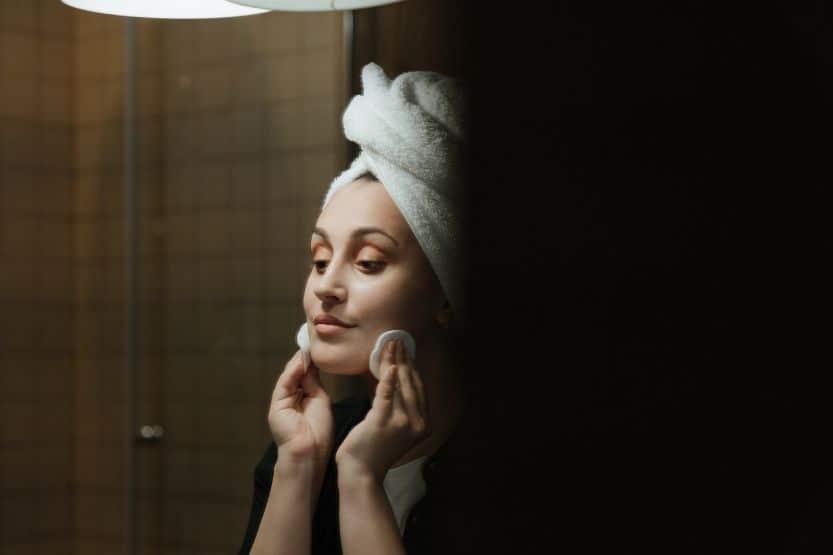
4. Eat Foods That Are Anti-inflammatory
Studies have suggested that anti-inflammatory foods can help in preventing breakouts. So, if you have acne-prone skin, limit your food intake with foods that will prevent inflammation.
Examples of these foods are:
- Broccoli
- Berries
- Green tea
- Avocado
- Grapes
- Turmeric
- Tomatoes
- Fatty fish
- Zinc-rich foods, including legumes, nuts, whole grains, and meat.
Tips to Prevent Breakouts for Your Acne-prone Skin
If you don’t want frequent breakouts on your acne-prone skin, follow these tips:
1. Use Water Soluble Cleansers
Water-soluble facial cleansers with no alcohol content won’t leave any traces of harmful residues on your skin. Besides, these gentle cleansers don’t have any harsh chemicals that will irritate your skin.
Please rinse your face with lukewarm water after using the water-soluble cleanser. Then pat dry your skin using a clean towel. Don’t use a loofah or washcloth while massaging your skin. Just use your fingertips.
2. Exfoliate with Beta Hydroxy Acids
After cleansing, exfoliate your skin with beta hydroxy acids. This will peel away the dead skin layers. Your face will acquire a fresh look. These types of acids are good in exfoliating your skin because they can work deep inside your skin pores after you have cleansed the outer layers of your skin.
These acids will penetrate your skin pores and remove excess dirt and oil. It will result in fewer blemishes and will reduce skin redness and imperfections.
One great exfoliating product is the CosRX Lactic Acid 7% + AHA 5% Serum for Face:
Click here to see it on Amazon.
This product is formulated with high potency, purified grade lactic acid that instantly exfoliates pore-clogging dead skin cells. It is suitable for all skin types.
3. Spot Treat Your Acne
If there are breakouts in your face, you need to spot treat them. For this purpose, use an acne treatment product that contains benzoyl peroxide. This substance is effective in killing the bacteria that cause acne.
Benzoyl peroxide comes in differing concentrations ranging from 2-10 %. Those with lower concentrations are available over the counter, while the stronger concentrations are doctor prescribed.
4. Moisturize
Most facial products for treating acne cause drying of the skin. Thus, you have to moisturize your skin to prevent it from getting dry. Use a non-comedogenic moisturizer that is also specifically formulated to fight acne.
5. Wash Your Face Twice a Day
Do this upon waking up and before going to bed. Normally, twice a day washing should be enough, unless you are overly sweaty during the day.
6. Hydrate Yourself
Drink at least eight glasses (about 8 ounces each) of water every day. This will keep you and your skin sufficiently hydrated and discourage the production of excess oil, which causes acne.
7. Check Your Hair Care Routine
Check the shampoos and conditioners that you are using. Some can cause breakouts in your scalp, forehead, and neck. Avoid anything that has too much oil in it.
Again, what does acne-prone skin mean? Acne-prone skin is more prone to pimples and comedones. These are usually located on the face, neck, chest, shoulder, and back. Moreover, acne-prone skin is usually shiny because the sebaceous glands overproduce oil or sebum.
To lessen your susceptibility to acne, take note and follow these tips.
8. Don’t Use Harsh Exfoliants
Using harsh exfoliants and scrubbing harder will not solve acne problems because it is not caused by dirt. You will only further irritate your skin and worsen its redness.
9. Change Pillowcases Twice or Thrice a Week
Routinely wash anything that comes in contact with your acne-prone skin. These include pillowcases, bedsheets, face towels, and so forth. This will prevent the clogging of your skin pores.
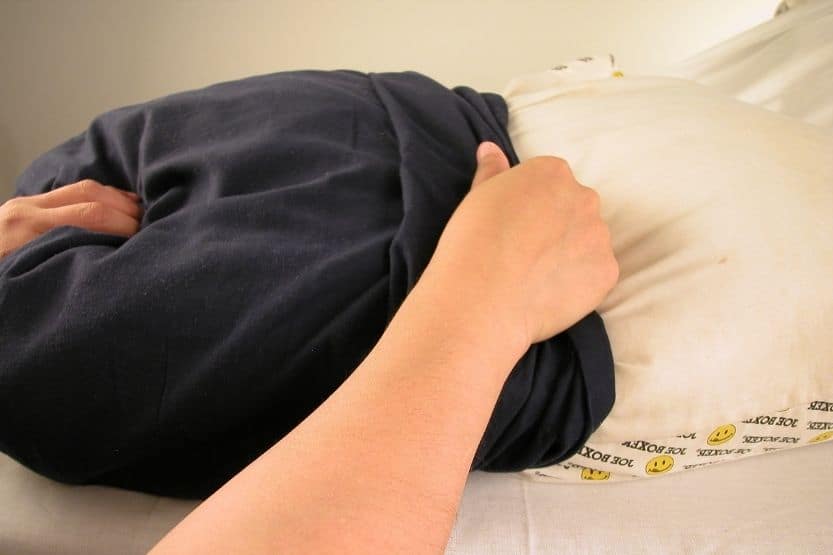
10. Be Patient
Acne problems don’t happen at once, and they won’t disappear at once, either. So, if you find a good mode of treatment, be patient while waiting for the results. According to dermatologists, on average, it takes from 8 to 12 weeks before you can see if an acne product is effective or not.
Be consistent – you should commit yourself to your skincare routine every day, not just when there are breakouts on your skin.
11. Do Everything in Moderation
Don’t be tempted to use all the products that you think will solve your problems fast. You will only strip your skin with the necessary oils leading to dryness and further skin irritation.
12. Decide If You Need Professional Help
If you see that OTC treatments are not doing you any good, maybe it’s time to seek the advice of a qualified dermatologist.
Options for Clinical Treatments
You can also seek a dermatologist’s help, especially if your acne is getting out of control. Clinical treatments may come in the form of in-office procedures or prescription-strength medications.
The latter may consist of topical retinoids, topical antibiotics, and a short period of taking oral antibiotics. Acne induced by hormonal fluctuations or changes may need a prescription for oral spironolactone or birth control pills.
What Not to Do If You Have Acne-prone Skin
Having acne-prone skin, you must be extra careful in the skin regimen that you will use.
Observe the following if you don’t want frequent breakouts:
1. Don’t Pop Your Pimples
Resist the urge to scratch, pick, or pop your pimples. It will only worsen skin inflammation and induce hyperpigmentation that can result in marks, spots, or even scars.
2. Don’t Use Products That Contain Harsh Chemicals
Be careful in buying OTC products for your acne. They may contain harsh chemicals that can worsen your problems. Especially be wary of using products that contain steroids without the consent of your dermatologist.
3. Don’t Use Face Packs
Face packs may contain substances that can cause adverse effects to your acne-prone skin. Don’t put anything on your skin that contains substances that you are not sure of. They may cause inflammation and irritation of your skin.
4. Don’t Go to Facial Parlor Services
Don’t go indiscriminately to just any facial parlor services. They may claim to provide facials and massage treatments to lessen your pimples but don’t address your underlying problems. These unauthorized practitioners may even worsen your acne problems.
Conclusion: What Does “Acne Prone” Skin Mean?
Acne-prone skin has a genetic predisposition to developing pimples and comedones. Acne is typically seen on the face, neck, chest, shoulder, and back.
This skin condition is most prevalent in people with oily skin. Their skins are often shiny because of the excessive amounts of sebum or oil produced by their sebaceous glands.



